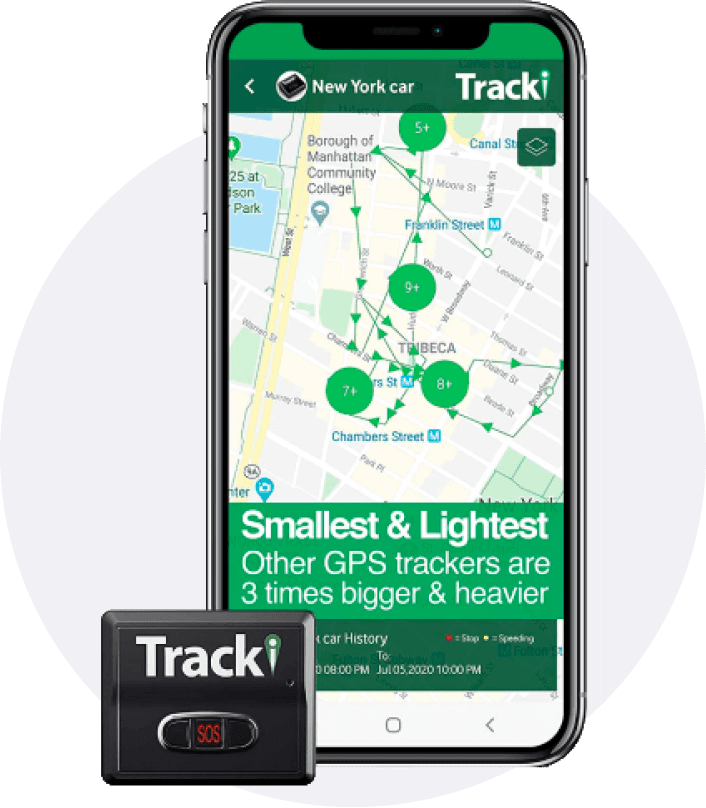Leading Advantages of GPS Tracking for Fleet Administration
Leading Advantages of GPS Tracking for Fleet Administration
Blog Article
Navigating the Future of GPS Tracking: Advancements, Challenges, and Opportunities Ahead
As we stand at the crossroads of technical improvements and social implications, the landscape of General practitioner tracking is positioned for a transformative trip in advance. With wonderful technology comes terrific responsibility, as data privacy concerns impend large and protection challenges in General practitioner tracking raising essential inquiries regarding protecting delicate details.
Development of GPS Technology
Developed for army purposes, GPS modern technology has actually developed to come to be a common tool in different industries, including transportation, logistics, agriculture, and individual navigating. Early General practitioner systems were identified by minimal coverage, lower accuracy, and bulkier hardware needs.
One secret milestone in the development of GPS modern technology was the development of Selective Availability (SA) in the 1990s, which intentionally degraded the precision of civilian GPS signals. As General practitioner modern technology proceeds to advance, we can expect further enhancements in accuracy, performance, and coverage, opening up brand-new possibilities for innovation and applications across different industries.
Real-Time Monitoring Innovations
Structure on the advancements in GPS modern technology that have reinvented precision and insurance coverage, real-time tracking has actually become a pivotal area of technology with profound effects across numerous markets. Real-time monitoring advancements enable companies and organizations to keep track of employees, lorries, and assets immediately, providing important insights for decision-making procedures - gps tracking. By leveraging real-time data, business can enhance functional efficiency, improve customer care, and guarantee the security and safety and security of their possessions
Among the key developments in real-time tracking is the assimilation of expert system and machine learning formulas, which enable predictive analytics and anomaly discovery. These capacities enable positive upkeep organizing, course optimization, and danger reduction approaches. The development of real-time tracking systems has led to the development of customizable dashboards and mobile applications, empowering users to accessibility important information anytime, anywhere.
Information Personal Privacy Issues

Information personal privacy worries incorporate different elements, consisting of the storage, sharing, and retention of location information. Services should carry out durable protection procedures to safeguard general practitioner tracking data from cyber dangers and information violations. Clear policies regarding information collection methods and the purpose of monitoring are published here important to build trust with customers and make certain compliance with data protection regulations.

Security Difficulties in GPS Monitoring
Resolving data privacy worries in GPS monitoring is elaborately connected to minimizing the security challenges that arise from prospective vulnerabilities in the innovation. One of the key protection obstacles in GPS tracking is the special info risk of unapproved accessibility to sensitive area data - gps tracking. Hackers could obstruct general practitioner signals, manipulate place information, or even track people without their permission. This not only attacks individual privacy yet additionally positions serious security threats.
One more security obstacle is the possibility for obstructing or spoofing GPS signals. Applying robust security, authentication measures, and signal verification procedures are critical actions in dealing with these safety difficulties in GPS tracking.
Emerging Opportunities in the Market
The expanding field of General practitioner tracking technology offers a myriad of appealing chances for read review industry growth and advancement. One crucial opportunity exists in the expansion of GPS tracking applications past conventional sectors. General practitioner monitoring can transform person care by allowing remote surveillance of important indicators and ensuring timely medical support.
Additionally, the enhancing demand for connected devices and IoT options presents a ripe possibility for GPS tracking business to expand their offerings and create cutting-edge services that cater to an extra connected globe. By utilizing on these arising opportunities, General practitioner monitoring business can place themselves for continual growth and success in the dynamic landscape of the industry.
Conclusion
In final thought, the future of GPS monitoring is marked by constant advancement and innovation in modern technology. Real-time tracking innovations and emerging opportunities existing encouraging prospects for the market. Data privacy problems and security obstacles stay significant obstacles that need to be attended to. As the industry moves on, browsing these challenges will certainly be vital to make sure the continued growth and success of general practitioner monitoring innovation.
With great development comes wonderful obligation, as data personal privacy issues loom big and security challenges in General practitioner tracking raising relevant inquiries regarding guarding delicate information.With the quick proliferation of General practitioner tracking technology in various industries, addressing information privacy problems has come to be an important imperative for both consumers and organizations alike. The collection of location data through General practitioner tracking elevates significant personal privacy concerns, as it makes it possible for the tracking of people' behaviors and activities. Organizations using General practitioner monitoring have to prioritize protecting this data to protect against unauthorized accessibility or abuse that could jeopardize individuals' personal privacy legal rights.
Organizations should carry out robust protection steps to shield GPS tracking information from cyber risks and information violations.
Report this page